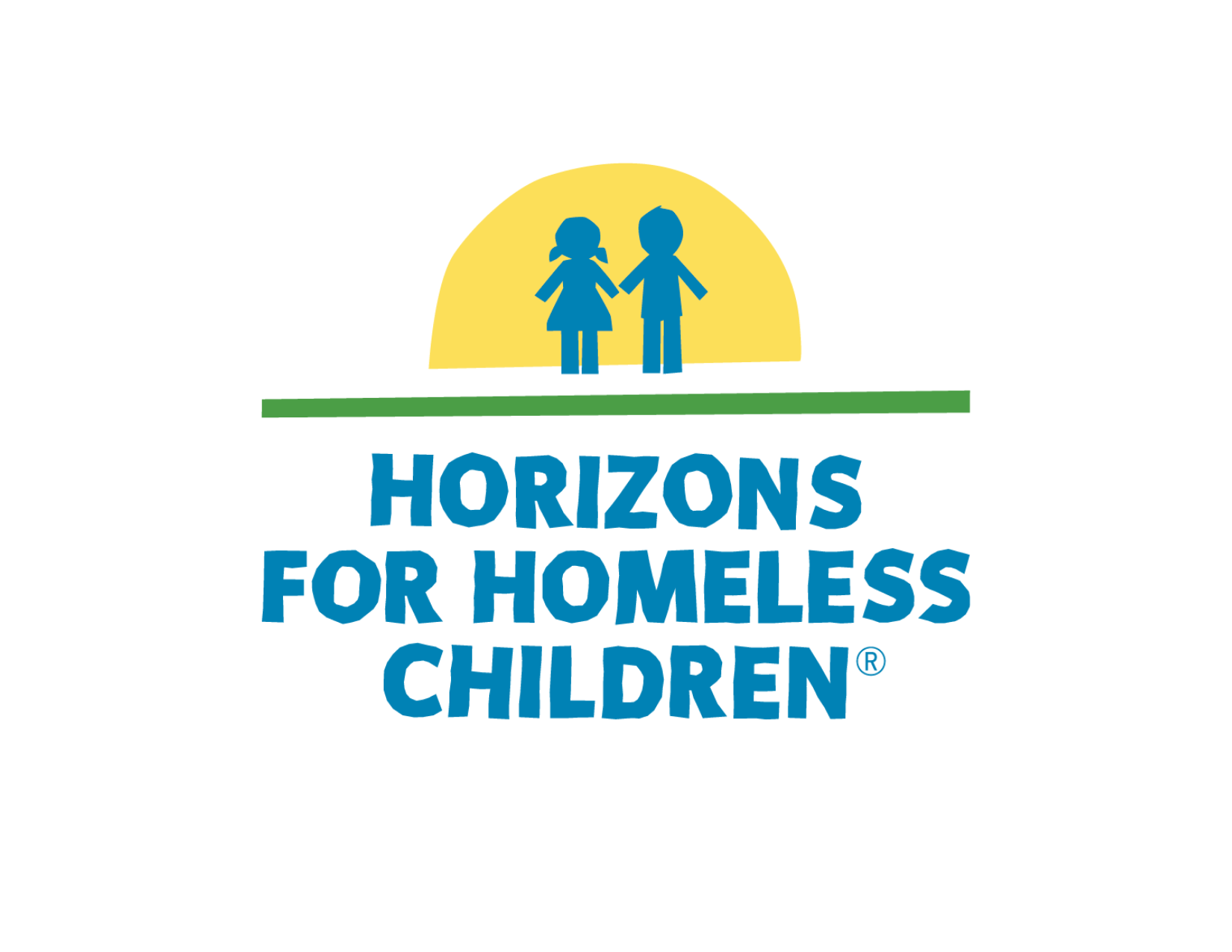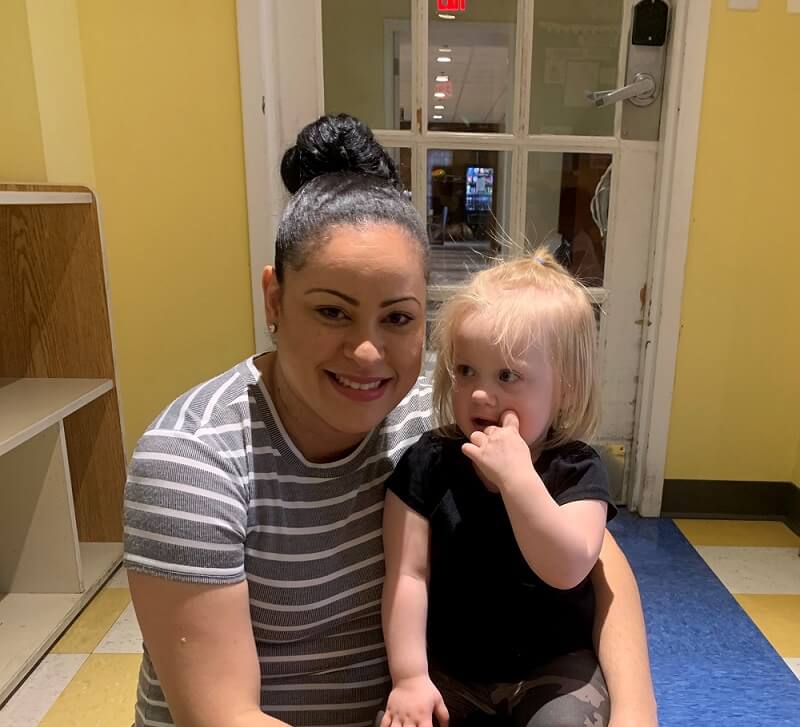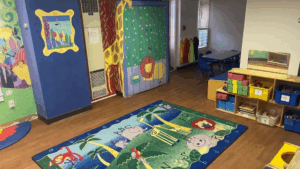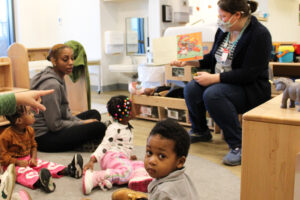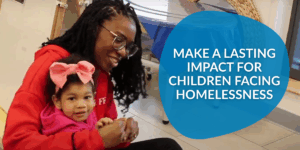Mayra’s Story
Mayra’s Story: A Profile of One of Horizons’ Bilingual Teachers
Mayra Sanchez moved to the United States from Puerto Rico when she was 23 years old, arriving with limited English. Despite not knowing the language, Mayra was determined to pursue teaching, as she had already begun her career in early education in Puerto Rico. Today, Mayra is a Lead Toddler Teacher at Horizons’ Dorchester Early Education Center and has been with the organization for 15 years as one of Horizons’ bilingual teachers.
At Horizons, 38% of participating mothers and 31% of children are primarily Spanish speakings. In order to establish an inclusive environment of trust and understanding, Horizons employees communicate with children and family members in their first language. Every classroom is intentionally staffed with at least one bilingual teacher. This has not only greatly benefitted both Spanish and English-speaking students; it has also created a diverse and culturally rich work environment for employees.
We sat down with Mayra, who shared her story and why she believes so strongly in Horizons’ commitment to a culturally inclusive atmosphere.
“I have been here for 15 years and I have seen the importance of having a Spanish speaking teacher in the classroom. For families, child and parent both feel calmer and safer when they feel completely understood,” said Mayra.
“I know how hard it can be for someone,” she said reflecting on her early years in the United States. “So, when I have the chance to communicate with a student or parent in the language they’re comfortable expressing themselves in, it builds a level of trust we might otherwise not have.”

Previously, Mayra worked as a kindergarten and first-grade teacher in Puerto Rico. “Teaching has always been my calling. I have always, always, wanted to be a teacher,” said Mayra. After arriving in the United States, Mayra went back to college, where she learned English, never forgetting what it felt like not to feel fully understood. Remembering those challenging times, Mayra was eager to continue to help children who might feel lost or misunderstood because of a language barrier.
“It is very important as a teacher to have clear communication with a child. When you speak to them in their first language, it makes them feel more comfortable, ultimately creating a space where they feel safe to learn and grow.”
At Horizons, all students are introduced to bilingual influences early on. In a typical Horizons classroom, the evidence of a bilingual environment is all around. Classroom furniture is labeled in both English and Spanish; there are both Spanish and English versions of books. At Horizons, different cultures are not only celebrated but an integral component of the work we do.
Sheila O’Neil, Executive Director of Community Children’s Centers & Family Partnerships at Horizons, shared the impact bilingual teachers can have on a child’s development, especially in literacy.
“Part of the importance of having a Spanish-speaking teacher in each room is that it is a very positive experience for children whose first language is Spanish. We need to build their base in their native language in order for them to be able to expand their literacy skills,” said Sheila.
Sheila went on to add that part of literacy development is instilling a love of reading. This comes from ensuring the experiences a young child has around reading are positive, and this always involves a nurturing adult. Those relationships and experiences are even more meaningful when a child is read to in their native language.
Mayra went on to discuss the cultural importance of speaking to a child in their first language.
“When a child hears you speaking the language they hear at home, the language most important people in their lives speak, they become curious to know more about their background and their culture,” said Mayra. “It can ignite an interest in them, and they may want to learn more about where they came from and where their family is from.”
Not only does this help children understand their own culture, but it teaches their peers the importance of inclusion and celebrating other cultures.
“When I came to this country, language was a challenge for me. Today, my language skills are an asset that helps me connect with children and their families,” said Mayra.
To learn more about Horizons and the bilingual environment, we strive to create, check out our other post, Bilingual Breakthroughs, centered on how Horizons has adopted this mentality organization-wide.
This post was written by Rachel San Giacomo, a regular contributor to Horizons’ blog.
